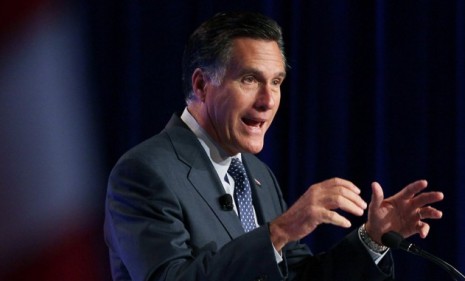The Tea Party has already won the election
The small-government movement has made tremendous short-term gains, says Albert Hunt at Bloomberg News. But after the midterms, the Tea Party's job will get harder

A free daily email with the biggest news stories of the day – and the best features from TheWeek.com
You are now subscribed
Your newsletter sign-up was successful
"With the U.S. midterm elections five weeks away," says Albert R. Hunt at Bloomberg News, "the Tea Party already is the big winner of 2010." It's rattled the party establishment (toppling mainstream GOP candidates from Nevada to Delaware), dominated the campaign season debate, and made its idol, former Alaska governor Sarah Palin, the GOP's leading 2012 presidential contender. Its "effect on non-Tea Party Republicans is palpable," with 2008 presidential candidate Sen. John McCain moving right on immigration and taxes, and 2012 hopeful Mitt Romney "assiduously courting the group." But, writes Hunt, although Tea Partiers think they're leading a revolution, it's more likely that "they're a short-term catalyst for Republicans and a long-term problem." Here, an excerpt:
A number of Republican strategists say there is little evidence the Tea Party agenda will turn off voters. That holds true for a midterm election, which often is a referendum on the incumbent party rather than a choice. It usually isn’t applicable when a party acquires power, or in a presidential election year. A number of the most prominent Tea Party candidates this year embrace views that might not appeal to swing voters.
More than a few House Republican candidates talk about privatizing Social Security and cutting back on federal support for Medicare. That won’t sit well with senior citizens, a majority of whom are expected to vote Republican in November.... And one 2012 Republican presidential hopeful may well seize an opportunity and run as the anti-Tea Party candidate; that used to be called a Big Tent Republican. All that may or may not happen. On this Nov. 2, however, the tea will be flowing.
The Week
Escape your echo chamber. Get the facts behind the news, plus analysis from multiple perspectives.

Sign up for The Week's Free Newsletters
From our morning news briefing to a weekly Good News Newsletter, get the best of The Week delivered directly to your inbox.
From our morning news briefing to a weekly Good News Newsletter, get the best of The Week delivered directly to your inbox.
Read the full article at Bloomberg News.
A free daily email with the biggest news stories of the day – and the best features from TheWeek.com